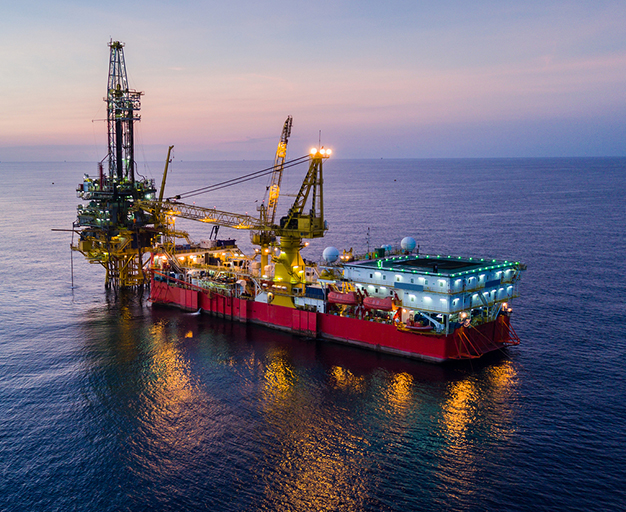Our Products
oil & gas
We provide professional expertise to qualified Crude Oil Buyers, Sellers and Buyer’s Mandates and Facilitators worldwide who meet the financial criteria required to purchase crude oil and petroleum products.
CRUDE OIL

Crude oil is a naturally occurring, unrefined petroleum product composed of hydrocarbon deposits and other organic materials.
A type of fossil fuel, crude oil can be refined to produce usable products such as gasoline, diesel and various forms of petrochemicals. It is a nonrenewable resource, which means that it can’t be replaced naturally. Crude oil is typically obtained through drilling, where it is usually found alongside other resources, such as natural gas (which is lighter, and therefore sits above the crude oil) and saline water (which is denser, and sinks below). It is then refined and processed into a variety of forms, such as gasoline, kerosene and asphalt, and sold to consumers. Although it is often called “black gold,” crude oil has ranging viscosity and can vary in color from black and yellow depending on its hydrocarbon composition. Distillation, the process by which oil is heated and separated in different components, is the the first stage in refining.
Ready to get started?
Take your business to the next level with My-tis.com
THE DIFFERENT TYPES OF OIL
West Texas Intermediate (WTI) – Approx. 0.3% Sulfur
This type of oil contains low amounts of sulfur and density. Its sulfur content is only 0.24% and its gravity is 39.6 degrees. The West Texas Intermediate is considered to be both sweet and light crude oil. The refining of this oil is usually done in Gulf regions as well as the United States, because it is conveniently situated to oil reserves.
Brent Blend – Approx. 0.4% Sulfur
The term Brent Blend is obtained from the geographical location where this type of oil is extracted from. Brent Blend is termed as sweet oil having 0.37% sulfur and 38.06 degrees in gravity. Brent Blend oil is typically used for making petroleum and gasoline for vehicles.
Bonny Light Crude Oil (BLCO) – Approx. 0.2% Sulfur
Bonny Light oil is a high grade of Nigerian crude oil with high API gravity (low specific gravity), produced in the Niger Delta basin and named after the prolific region around the city of Bonny.
Dubai Crude
As the name puts it, the Dubai Crude oil comes from Dubai – a massive oil producing country in the world. The Dubai crude has a light density, having 31 degrees gravity and a sulfur content of only 2%.
Russian Export Blend (REBCO) – Approx. 1.2% Sulfur
This type of oil has been the standard for Russian crude oil. This is also a perfect example of sour oil because of its high amount of sulfur. Russian expert blend oil is heavily exported to Italy and Netherlands.

AVIATION FUEL (JET FUEL)

Aviation fuel or Jet Fuel is a specialized type of petroleum-based fuel used to power aircraft; it is generally of a higher quality than fuels used in less critical applications such as heating or road transport, and often contains additives to reduce the risk of icing or explosion due to high temperatures, amongst other properties.
Jet fuel, Aviation Turbine Fuel (ATF), or avtur is a type of fuel designed for use in aircraft powered by gas-turbine engines. It is clear to straw-coloured in appearance. The most commonly used fuels for commercial aviation are Jet A and Jet A-1 which are produced to a standardized international specification. The only other jet fuel commonly used in civilian turbine-engine powered aviation is Jet B which is used for its enhanced cold-weather performance.
Aviation Fuel or Jet fuel is a mixture of a large number of different hydrocarbons. Kerosene-type jet fuel (including Jet A and Jet A-1) has a carbon number distribution between about 8 and 16 carbon numbers (carbon atoms per molecule), wide-cut or naphtha-type jet fuel (including Jet B), between about 5 and 15 carbon numbers.
By the numbers
Our best-in-class digital marketing agency impresses customers with impactful results and wows them
with stellar customer service.
D2 GAS OIL
D2 is a refinery abbreviation for Gas oil. It is the second distillate from the crude oil, and can be used without reformers and additives. So, the first engines used D2 as fuel — before petrol cars as we know them today was invented.
D6 Diesel Bunker Fuel
D6 is a type of residual fuel, mainly used in power plants and larger ships. The fuel requires to be preheated before it can be used. It is not possible to use it in smaller engines or vessels/vehicles where it is not possible to pre-heat it. D6 is its name in the United States of America. In other parts of the world it has other names. D6 is also known as Residual Fuel Oil and is of high-viscosity. This particular fuel oil requires preheating to 220 – 260 Degrees Fahrenheit. D6 is mostly used for generators.
En-590 Diesel
The EN 590 had been introduced along with the European emission standards. With each of its revisions the EN 590 had been adapted to lower the sulphur content of diesel fuel – since 2007 this is called ultra low sulphur diesel as the former function of sulphur as a lubricant is absent (and needs to be replaced by additives). EN590 describes the physical properties that all automotive diesel fuel must meet if it is to be sold in the European Union, Croatia, Iceland, Norway and Switzerland.

FUEL OIL
Fuel oil (also known as heavy oil, marine fuel or furnace oil) is a fraction obtained from petroleum distillation, either as a distillate or a residue. In general terms, fuel oil is any liquid fuel that is burned in a furnace or boiler for the generation of heat or used in an engine for the generation of power, except oils having a flash point of approximately 42 °C (108 °F) and oils burned in cotton or wool-wick burners. Fuel oil is made of long hydrocarbon chains, particularly alkanes, cycloalkanes and aromatics. The term fuel oil is also used in a stricter sense to refer only to the heaviest commercial fuel that can be obtained from crude oil, i.e., heavier than gasoline and naphtha.
LIQUIFIED PETROLEUM GAS (LPG)

Liquefied petroleum gas or liquid petroleum gas (LPG or LP gas), also referred to as simply propane or butane, are flammable mixtures of hydrocarbon gases used as fuel in heating appliances, cooking equipment, and vehicles. It is widely used alternative fuel. It has substantial reserves due to its dual origins from natural gas processing and crude oil refining. Liquefied Petrol Gas (LPG) powered passenger cars have about 10% lower tailpipe CO2 emission than comparable gasoline powered cars. When compared to a diesel car, there is no significant CO2 emission reduction per km driven; however, LPG powered vehicles do have substantially lower Nitrogen Oxides (NOx) emissions than diesel powered vehicles.

